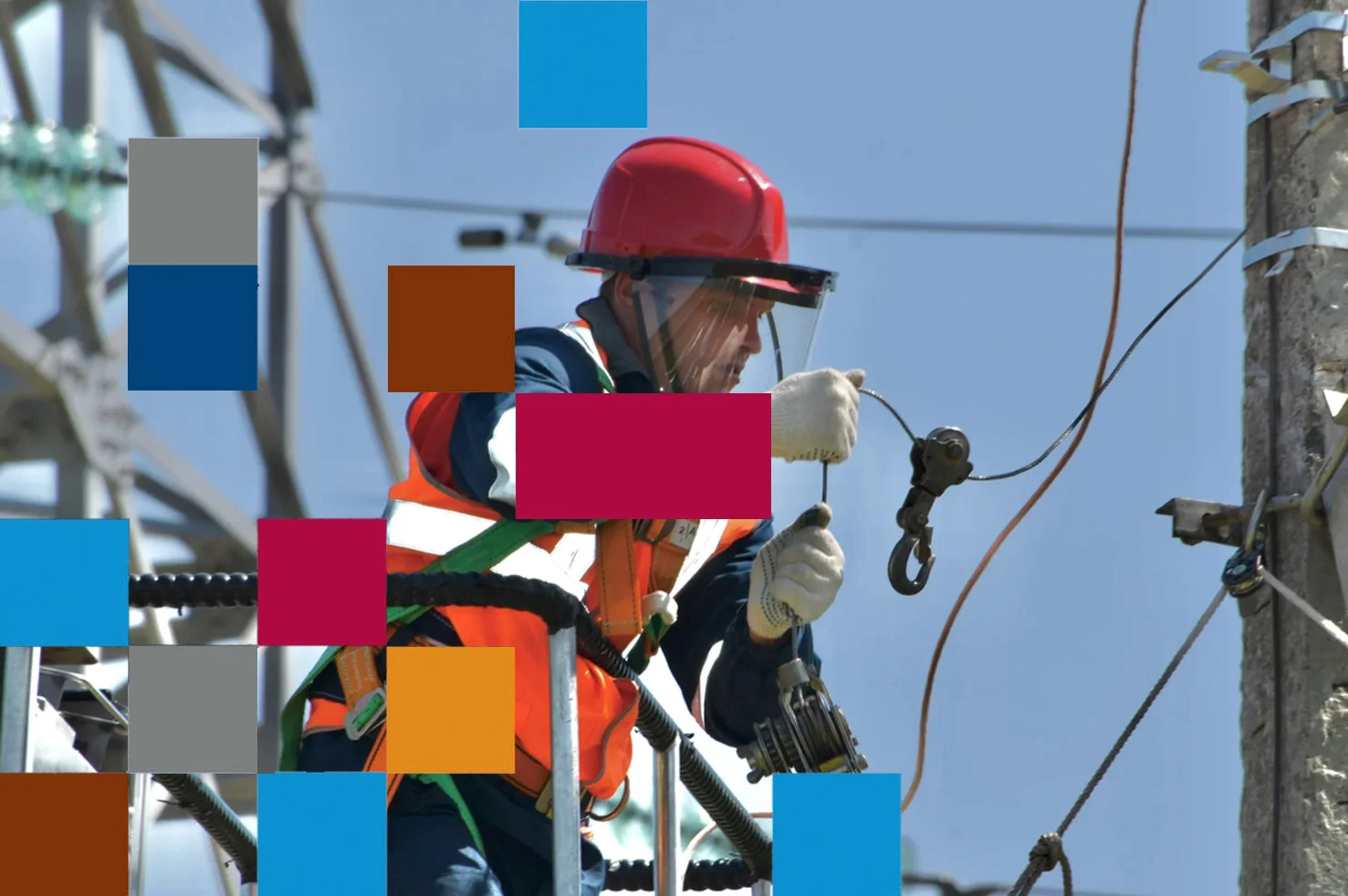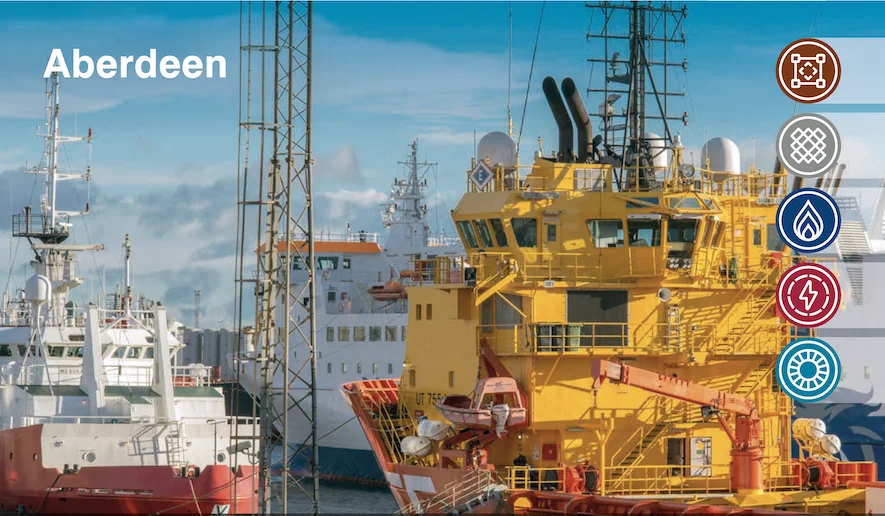
Digitalisation & Automation: The Gap No One is Talking About
21 Apr, 20257 Minutes
Digitalisation and automation are transforming the oil and gas sector, but are companies equipped to meet the rising demand for skilled professionals in these fields?
As the industry shifts toward more sustainable practices, the integration of Emerging Oil and Gas Technologies is becoming essential to improving efficiency and reducing operational risks. However, finding professionals with both engineering expertise and digital skills is proving to be a significant challenge. Oil and gas companies need to rethink their oil and gas recruitment strategies to fill the growing gap between traditional engineering and the emerging digital workforce.
In this blog, we explore the digital transformation in oil and gas and how businesses can adapt to attract and retain the digital talent they need to stay competitive.
Why Digitalisation is Changing Workforce Needs
The oil and gas industry is undergoing a significant transformation, shifting from traditional fossil fuels to more sustainable energy sources. As part of this evolution, digitalisation is driving fundamental changes in how operations are run, from exploration to downstream processes. Technologies like AI, predictive maintenance, predictive analytics, digital twins, and automation are now widely applied, improving efficiencies, reducing risks, and enhancing operational decision-making.
However, one of the major challenges facing the industry is the difficulty in finding professionals who can combine traditional engineering expertise with the knowledge required for these new digital systems. The existing workforce, which tends to be more mature compared to other industries, is not always trained in these advanced technologies, making it harder to find the right talent.
As data becomes a critical asset for businesses, ensuring accurate data monitoring, analysis, and reporting becomes increasingly important. With this shift comes heightened demand for professionals such as data analysts, automation specialists, and cybersecurity experts. Unfortunately, these professionals are in high demand across multiple industries, including technology, finance, and renewables, putting further strain on oil and gas recruitment efforts.
To prevent the situation from worsening, oil and gas companies must act quickly. This means not only attracting digital professionals into the industry but also accelerating digital training initiatives to upskill the existing workforce. The competition for top digital talent is fierce, and oil and gas companies need to make fast, strategic moves to avoid being left behind.
The Roles That Are Changing: The Skills Companies Need
The digitalisation of the oil and gas industry is transforming many traditional roles. Now, many oil and gas professionals need to complement their technical expertise with digital skills to stay relevant. Some of the key roles that are evolving include:
- Drilling and Production Engineers: These engineers are increasingly relying on real-time data analytics and AI-driven decision-making to optimise processes, rather than just traditional engineering skills. They focus on adapting equipment for solutions like predictive maintenance and automation.
- Maintenance and Inspection Teams: The shift to drones, IoT-based monitoring, and automated inspections requires engineers who can interpret data insights and replace traditional inspection methods with more efficient, digital alternatives.
- SCADA and Control Room Operators: As these roles evolve, they now integrate AI-powered control systems. Machine learning helps operators not only understand what has happened but also predict future scenarios and suggest the best actions autonomously.
Additionally, digital transformation is creating new roles within the oil and gas sector. These roles include:
- Cybersecurity Experts: As digital infrastructure becomes a prime target for cyber threats, there is a rising demand for professionals who can protect digital assets while understanding the specific risks of the oil and gas industry.
- AI & Data Scientists: These experts develop models to predict maintenance needs, optimise exploration, and streamline production processes through data analysis and machine learning techniques.
- Robotics & Automation Engineers: They design robotic systems for hazardous tasks, such as pipeline inspections, and automate repetitive processes, improving both safety and productivity.
- Digital Twin Engineers: These engineers create virtual models of physical assets to simulate performance, predict failures, and optimise maintenance schedules.
Hiring managers in the oil and gas industry need to look for candidates who possess both engineering knowledge and expertise in AI, data analysis, or automation. These are the professionals who will drive the industry forward in the coming decades.

The Skills Gap – Why Hiring Digital Talent Is Difficult
As the oil and gas industry embraces digitalisation, it faces significant challenges in finding professionals with the right blend of traditional engineering expertise and digital capabilities.
The shortage of candidates with hybrid skills is a growing issue. Universities and educational institutions have been slow to produce graduates who are equipped with both industry-specific knowledge and the technical expertise needed for digital roles. Consequently, many engineering graduates continue to focus on traditional oil and gas disciplines, leaving a gap in the demand for those who understand both the operational and technological aspects of the sector.
In addition, the oil and gas industry is facing fierce competition from sectors like technology, renewables, and finance, where AI developers, data analysts, and automation engineers are in high demand. These professionals have the luxury of choosing roles that suit them best, further increasing the difficulty for oil and gas companies to secure the talent they need.
Key Challenges in Digital Talent Recruitment:
- Limited Hybrid Skill Sets: Many engineering graduates still lack exposure to digital technologies such as AI, data analytics, and automation, creating a shortage of professionals with the right combination of skills.
- Competing with Other Industries: Oil and gas must compete with the tech and renewables sectors, where digital talent is already scarce. This intensifies the challenge of attracting professionals with the expertise needed to advance digital transformation.
- Upskilling the Existing Workforce: The time and cost it takes to train existing staff in new digital technologies are major barriers. With many oil and gas employees nearing retirement age, it becomes harder to incentivise older workers to gain digital skills, especially when they may feel out of touch with new technologies.
- Outdated Technology and Legacy Systems: Many oil and gas companies still rely on outdated technology, making it difficult for skilled professionals to manage both legacy and new systems. It’s a tough situation where new digital workers are unfamiliar with legacy systems, while long-serving engineers lack experience with modern technologies.
Why the Sweet Spot Matters
Hiring managers need to consider both traditional industry experience and modern digital capabilities when assessing candidates. The oil and gas industry needs professionals who can bridge the gap between engineering knowledge and digital expertise to drive innovation and growth. Ensuring that these hybrid skills are part of the recruitment process will be key to securing the digital talent necessary for the industry's future.
According to IOGP, the energy industry faces a potential shortage of 40,000 workers by 2025 due to this skills gap
What Companies Need to Do to Secure Digital Talent
The oil and gas industry is undergoing a significant transformation, and businesses need to adjust their approach to recruitment in order to stay competitive. Digital talent is becoming increasingly important, and securing the right candidates requires a proactive strategy. Companies that don’t act now will face greater challenges in filling essential roles and staying ahead of the competition. Here's what you need to focus on:
1. Look Beyond Traditional Oil and Gas Talent
Oil and gas companies should not limit their search to just the industry. Professionals from sectors such as aerospace, defense, and advanced manufacturing bring valuable expertise in areas like AI, automation, and digital systems that can be directly applied to oil and gas roles. Broadening your search will help attract fresh talent with the right skills.
2. Invest in Upskilling Your Current Workforce
While external recruitment is vital, companies must also focus on developing their existing workforce. Providing training programs that focus on automation, AI, and data analytics will help employees adapt to new technologies. Investing in upskilling ensures a smoother transition for employees into digital roles and maintains continuity in your workforce.
3. Work with Specialist Oil and Gas Recruitment Agencies
Partnering with oil and gas recruitment agencies that understand the specific demands of the industry can make a big difference. These agencies focus on finding candidates who have the right balance of engineering knowledge and digital skills. Working with specialists can save time and ensure that you’re attracting the right talent to help your business grow.
4. Strengthen Your Employer Brand
As the demand for digital talent grows, businesses need to position themselves as leaders in digital transformation. Oil and gas companies should highlight their investment in new technologies and showcase their commitment to adopting emerging oil and gas technologies. This will help attract professionals looking for opportunities with businesses that are forward-thinking and embrace innovation.
Why You Need to Act Now
The competition for digital talent is fierce. As industries such as tech, renewables, and finance continue to grow, oil and gas companies must act quickly to secure the talent they need to stay competitive. Without a proactive recruitment strategy, companies risk losing out on the skilled professionals necessary to drive future success.
Oil and gas companies that fail to adjust their hiring strategies now will face increasing difficulty in filling roles and keeping up with technological advancements. Digital transformation in oil and gas is happening, and those who don’t move fast enough will struggle to adapt.

Final Thoughts: The Urgency of Securing Digital Talent
The digital transformation in the oil and gas industry is rapidly changing the nature of the workforce. With new technologies such as AI, automation, and data analytics taking the forefront, oil and gas companies must act quickly to attract and retain digital talent. As industries like tech, finance, and renewables continue to draw from the same talent pool, the need for a strategic approach to digital recruitment has never been more critical.
Failing to adapt to these changes will lead to significant skill gaps, leaving companies unable to keep up with industry advancements and operational demands. It’s essential for businesses to integrate digital transformation in oil and gas into their workforce strategy to ensure they remain competitive in the evolving marketplace.
How to Secure the Digital Talent You Need
At Orion Group, we specialise in oil and gas recruitment, helping businesses secure top engineers, technical specialists, and analysts. If you're struggling with oil and gas recruitment, digital transformation, or upskilling, get in touch to find out how we can support your hiring needs. We provide access to pre-vetted professionals with expertise in emerging oil and gas technologies.
Speak to Orion Group’s oil and gas recruiters today to secure the digital talent your business needs.


